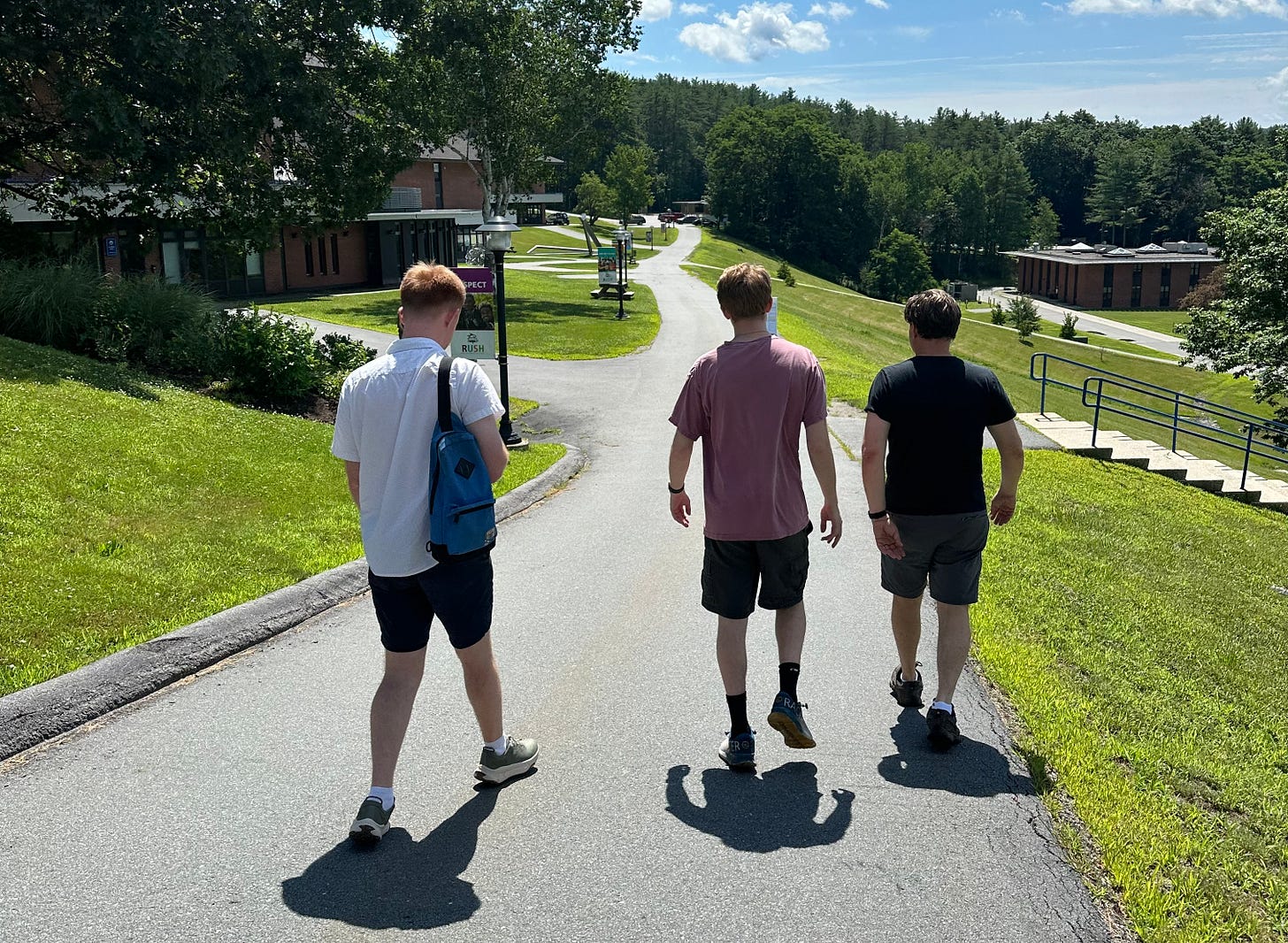For the past couple of months, I’ve been using this newsletter to post snippets of a book that I’m working on. It’s a very practical book with tips for parents as they are guiding their neurodiverse kids to adulthood.
This week, I wrote about 4,000 words about transition programs. 4,000 words is under my weekly word count goal, but those words required some research and thought, so it’s not terrible.
I’m not going to post those words here today. I need time to clean up typos and polish up some weird sentences, and I don’t have time. We’re driving to Rhode Island in 30 minutes. Yes, this newsletter will also have plenty of typos and weird sentences, because there’s no time to have Steve read things over. Oh well. It’s not like typos are anything new here.
We’re going to Rhode Island to meet up with one my old friends, who is one of those lucky people who is semi-retired AND an empty nester AND has a boat. If she wasn’t so lovely, I would be rather jealous.
Erin and I go back to middle school, where we were in the Girl Scouts together. We had the best troop — monthly camping trips, competitive Girl Scout cookie sales, weekly meetings, and a trip to Mexico entirely funded by our superior cookie sales techniques. I had a great time, without ever earning one badge. I was always proud of that we weren’t interested in those little stupid circles, but just recently I remembered that everyone else earned badges and got that “Top Scout” award. It was just me with the empty sash.
Related. My oldest son, who I thought was super average/normal, has self-diagnosed himself as having ADD. It’s why he stopped going to college with only four classes to go. So, I’ve been reading tons of books on ADD and ADHD to get up to speed, and asking myself some obvious questions.
Um. Maybe? It might explain the lack of Girl Scout badges.
Anyway, I’m writing this autism newsletter today to talk about Ian at his summer program at his autism college. It was a big move, and we weren’t sure how it was going to go. We were terrified because he had never been away before. We didn’t know if he would be similar to the other kids. We didn’t know if he could take care of himself.
The good news is he is hitting out of the ballpark. Totally independent. Totally at ease with the separation. Academically, he’s doing so well that they offered him a full year position and a scholarship. After some debate, we decided that he might come back in the spring; I need some time to make some changes with some paperwork with the state.
We chat every night via FaceTime. We hold up a squirming cat to the screen and ask him questions. What did you do today? What did you eat for lunch? Ian’s not a chatty guy, so we discuss the basics. He’s clearly doing fine, even though he’s a little homesick.
Actually, he might be bored, not homesick. After the fun of figuring out a new place wore off, he didn’t have much else to do. It’s up in rural Vermont. It’s lovely, but we live in a suburb outside of New York with tons of people and activities. Up there, he can walk to a general store to get a burrito, but that’s about it for excitement.
It’s also a little quiet in the dorm. There are only 40 kids on the campus, and most of them have Ian’s flavor of autism. So, they sit behind their laptops in their dorm rooms or common areas and don’t talk to each other. Here, there are four of us, including one, maybe two, super talkative ADHD people.
Bad talkers need to be around good talkers. They need someone else to carry the conversation and babble and say illogical things. Bad talkers actually rely on the good talkers to keep things going.
Some might say that bad talkers are conversation free loaders, but I’ve been told that bad talkers are sensible and aren’t polluting the air with randomness.
[Steve is revving up the Mini, so we have to drive away in three minutes.]
Last thoughts. We have to push all of our kids, neurotypical or not. They grow when we push them to try new experiences, when we get them out of their comfort zone, when they leave us for a while.
Because Ian has had this experience and succeeded, his options for the future just multiplied. It has opened new doors, new possibilities. I didn’t know how it was going to go. He could have easily failed. A phone call home to pick him up. It could have happened. But it didn’t.
Push your kids. And push yourself, because we’re still growing, too.


